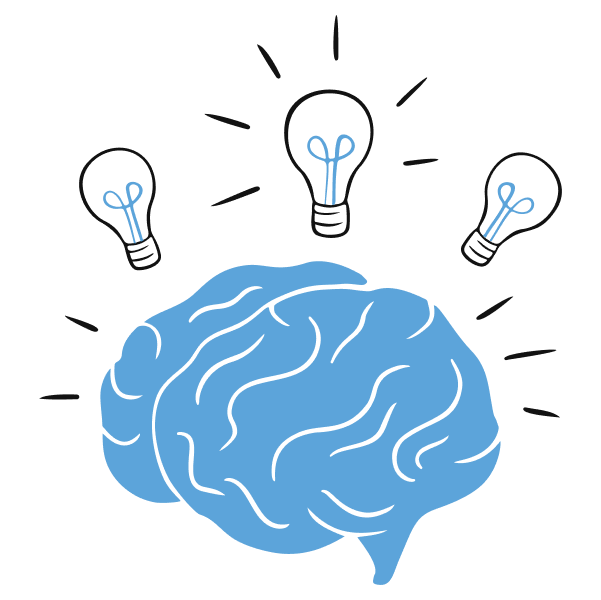Eye Movement Desensitization Reprocessing (EMDR) is a widely used treatment method in psychology. EMDR is primarily used for symptoms resulting from trauma or PTSD. What exactly is EMDR and how does this therapy work? You can read more about it in this article.
What is EMDR?
EMDR is a form of therapy used for processing trauma. The acronym stands for Eye Movement Desensitization Reprocessing. In EMDR treatment, the psychologist helps you reduce the emotional charge associated with a distressing memory. You won’t forget what happened, the emotions you feel about it become less strong. This can help when you have (long-term) symptoms as a result of a trauma.
When is EMDR right for you?
Amongst other things, EMDR is used when you’ve experienced trauma: in other words, a shocking event or disturbing series of events. Trauma can cause quite a few symptoms. For example, you may experience:
- Anxiety and panic attacks
- Flashbacks
- Avoidant behaviors
If you are unable to process your trauma properly yourself, it may help to talk to a psychologist. To treat trauma, cognitive behavioral therapy is used as one of the options in addition to EMDR.
EMDR for PTSD
EMDR is also used as a treatment if you’re suffering from PTSD. People with PTSD experience long-term symptoms of trauma, or they don’t experience any symptoms until weeks, months, or even years after the event. Read here more about treating PTSD.
EMDR is also used in the treatment of PTSD. With PTSD the symptoms you have from the trauma are long-term or they don’t occur until weeks, months or years after the trauma.
How does EMDR treatment look like?
What are the effects of EMDR?
As your working memory struggles to process everything that’s happening, your memory of the traumatic event starts to fade. It won’t completely go away, but the emotional charge associated with the memory will diminish.
As a result, you’ll find it much easier to think back to particular scenarios without feeling any fear or anxiety. You won’t feel overwhelmed with emotions when someone or something reminds you of the traumatic event. You’ll experience fewer flashbacks and your avoidant behaviors will decrease as a result.
What are the side effects of EMDR?
EMDR is an intensive treatment that requires a lot of work from your brain. This may cause you to experience certain side effects after an EMDR session, including:
- Fatigue;
- Headaches;
- A new range of images and emotions racing through your mind.
Usually, these symptoms won’t last longer than three days.
Learn more about EMDR treatment
Do you have questions about EMDR treatment? Recovery from trauma or PTSD is possible. In many cases, EMDR offers improvement. A psychologist can advise you whether EMDR is appropriate in your situation, or whether maybe other techniques are more appropriate, such as Imaginal Rescripting or Exposure therapy. This way you get the professional help and treatment that suits your needs.
-
Do you want to talk to a psychologist? Get in touch with a psychologist or call 085-1308900 for more information. Read more tips on finding a suitable psychologist here.
-
At iPractice you work with 2 psychologists. You have an online psychologist for direct contact and a consultation room psychologist for sessions at one of iPractice’s locations. This allows you to contact us online at any time with your questions.
-
Read here if you have questions about treatment and the intake phase at iPractice. Or if you are unsure about when to see a psychologist.
-
In many cases, your health insurance company will reimburse your EMDR treatment. Read more about when and which health insurance companies reimburse our care.
FAQ
EMDR is the most common treatment method for trauma-related symptoms.
In EMDR treatment, the psychologist helps you reduce the emotional charge associated with a distressing memory. You do not forget what happened, but the emotions you feel about it become less strong. This can help when you have (long-term) symptoms as a result of a trauma.
EMDR treatment consists of several EMDR sessions. An EMDR session takes about 1 hour. Every trauma is different and everyone has their own processing mechanism. This makes it difficult to predict how many sessions are needed. On average, two to six sessions are needed for single trauma.
This varies. Everyone has their own processing system. Sometimes improvement can occur within 1 session, sometimes it takes several sessions.
Working Memory Theory is the theory of the mechanism of action of EMDR that currently has the most empirical support. The distracting stimulus (eye movements) create a load on your working memory, at the same time you are asked to think about the traumatic memory which also demands a lot from your working memory. The competition of these two tasks leaves little room for the emotions associated with the traumatic memory and allows you to give it a different meaning.
EMDR is a proven effective treatment method for PTSD. In other symptoms EMDR is sometimes also used, but the effectiveness has not (yet) been proven. Together with your therapist you look at which treatment method suits your symptoms and the goals you have set.
EMDR is one of the proven effective methods for PTSD. If EMDR does not work, it can be switched to such methods as Imaginary Exposure (IE), a form of cognitive behavioral therapy (CBT).
You determine this with your psychologist and it depends on the type of trauma (single or complex trauma) and the progress of treatments. In general for single trauma, it is 2 to 6 sessions.
The cost of EMDR treatment depends on the length of treatment. In addition, it depends on your insurance how much deductible you have to pay, and whether the treatment is fully reimbursed.
In general an EMDR session lasts 45 minutes or 90 minutes.
After an EMDR session, the effects may continue for a while. In some cases, it may cause some symptoms, such as fatigue, headaches or new images emerging. Usually the symptoms do not last longer than three days.


 Nederlands
Nederlands


